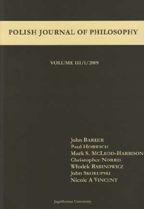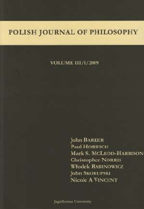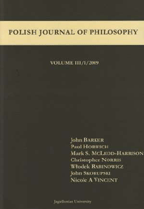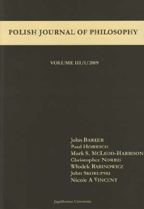
Overcoming Logical Psychologism (Frege’s Influence on Husserl)
The central and probably most controversial point concerning the psychologism — anti-psychologism debate is the problem of Frege’s alleged influence on the change in Husserl’s views. Contemporary thinkers investigating the early period of Husserl’s philosophy (between 1891—1895) have attempted to show that the opinion that Frege’s doctrine had a traumatic influence on Husserl’s views is not justified. This paper, which tries to maintain a balance between strictly philosophical argumentation and narrowly understood historical argumentation, suggests an alternative solution. By appealing to Frege’s works (known by Husserl) published before 1894, the locus of psychologism will be determined. Afterwards, I will present Husserl’s and Frege’s views on the elucidation procedure and the distinction between calculus and ‘lingua characteristica’. By discussing Husserl’s works from 1894-1897, I will show that his standpoint changed dramatically as he entered into the anti-psychological program, involving a new theory of concepts, judgment, and the so-called ‘pure Fregean flavour’— a new account of logical content.
More...


